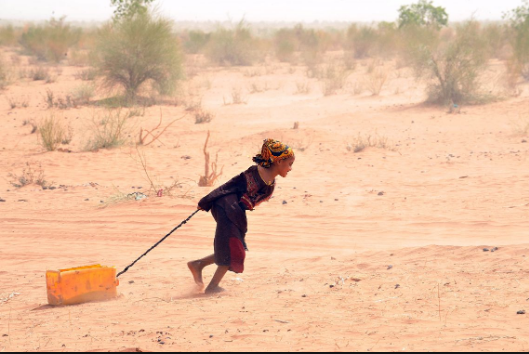It’s Time to Talk Loudly: Stop the War on Yemen
YemenExtra
SH.A.
While Saudi Arabia is struggling to salvage its image in the aftermath of the murder of journalist Jamal Khashoggi inside its consulate in Istanbul, another human rights crisis triggered by its actions confronts the kingdom.
According to the United Nations, the war on Yemen, waged by a Saudi-led coalition for over three years with American support, has pushed 14 million people, about half of the country’s population, into “pre-famine” conditions. So far, Saudi Arabia has had a free run in Yemen.
Despite mounting criticism of his handling of the attack on one of the poorest Arab countries, Saudi Crown Prince Mohammed bin Salman, the main architect of the war, has evaded international pressure to cease hostilities. During the course of the war, the humanitarian crisis in Yemen has progressively worsened.
Since 2015, thousands of civilians, mostly children and women have been killed by Saudi airstrikes. Reports say that the Saudi-led coalition is committing daily crimes in Yemen. The Saudi war has resulted in bringing famine to more than 14 million Yemeni civilian, which is half the population. According to Oxfam, a civilian is being killed because of the conflict every three hours. Moreover, the UN says that a child dies every 10 minutes due to starvation
Half of the country’s medical facilities are not functional. And at least 22 million people are in need of humanitarian assistance, of whom 14 million are extremely dependent on aid for survival. Besides, there was a deadly cholera outbreak in the country that has affected at least 1.1 million people. None of this has deterred Saudi Arabia from continuing to pound Yemen. It hasn’t eased the blockade even after the UN warned of a famine.
The international community, which has rightfully criticised Riyadh over the Khashoggi case, failed to act while Yemen was being methodically destroyed. This war has to stop. If Saudi Arabia has geopolitical concerns about Iran’s growing influence, it should address them directly with Tehran, not by punishing the people of Yemen.
Over 18,000 missile attacks on markets, hospitals and cultural centers by Riyadh and coalition partners UAE, Bahrain, Kuwait, Qatar, Egypt, Jordan, Morocco, Senegal and Sudan, the borders between the two belligerents remain largely unchanged.
As the Saudi-led coalition disrupts supplies of food and other necessary items, including medical equipment, through the sea, land and air blockade.
Websites.

